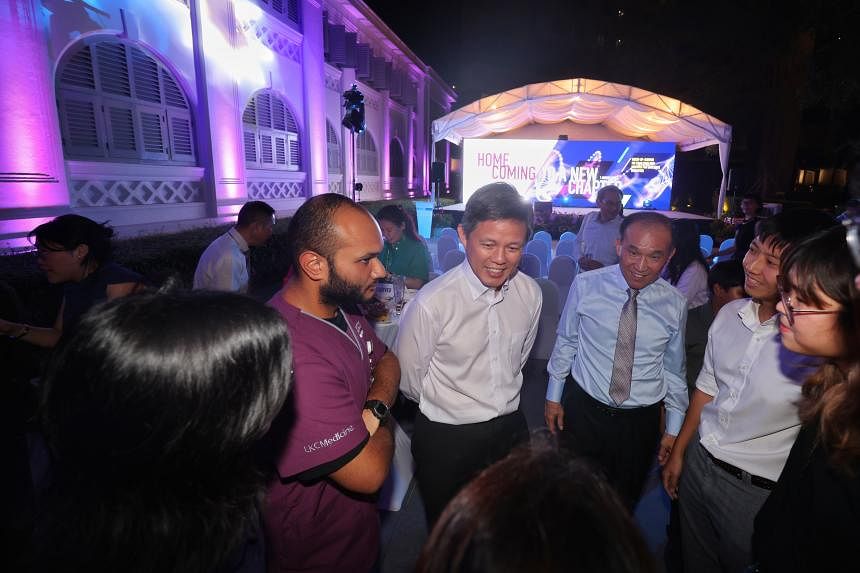SINGAPORE – As the healthcare landscape becomes more complex, it is key to embrace technology and integrate data with medical practice, said Education Minister Chan Chun Sing.
“This is an ongoing challenge that we must keep working on, combining the best of medicine in its traditional form with the best and latest frontier technologies that we can harness in service of medicine,” he said.
Mr Chan was speaking as the guest of honour at the Nanyang Technological University’s (NTU) Lee Kong Chian School of Medicine (LKCMedicine) Homecoming event on Aug 1.
He addressed about 300 LKCMedicine faculty, alumni, students and industry partners at the event, which welcomed the first batch of students to receive medical degrees solely from NTU as well as a fresh curriculum under its new degree programme.
It was reported in 2022 that students enrolling in LKCMedicine from 2024 will graduate with NTU conferred medical degrees, unlike their seniors, whose degrees bear both the names of NTU and Imperial College London.
Mr Lim Chuan Poh, chairman of LKCMedicine’s governing board, who also spoke at the event, said graduates from the 2023 batch will mark the end of the two school’s 18-year partnership in 2028.
Both the joint NTU-Imperial degree and the new NTU medicine degree programme will run side by side for the next four years, he added.
The new Bachelor of Medicine and Bachelor of Surgery degree programme will have three new aspects – digital health technologies, medical humanities, and professional growth and development, said Professor Joseph Sung, dean of LKCMedicine.
Students will be taught how to use data science, artificial intelligence and machine learning to help them make quicker diagnosis and suggest better treatment, as well as to equip them with skills to better understand patients, he added.
“We don’t want our students or future doctors to be just technocrats and only know about computer science,” he said. “We want them to be human doctors.”
Prof Sung added that under this new curriculum, students will also be trained to become more resilient doctors who can overcome new challenges in the healthcare landscape in the future.
However, it will also retain the best of the current degree programme, which include aspects like team-based learning, an interdisciplinary approach to medicine, and early patient interaction, he said.
When asked how he feels about the changes in curriculum, Year 5 medicine student Lim Rong said they are not unexpected.
“Times are changing and the demands of healthcare are also changing, and what is needed as a clinician will change over time,” the 25-year-old said. “I think these are changes that anyone in the medical field is anticipating.”

